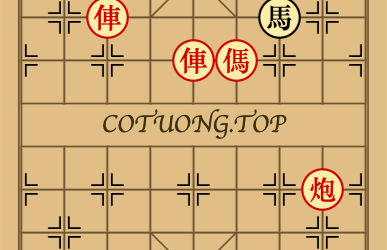Even ancient games have a need to expand their horizons and so xiangqi (Chinese chess) finds itself appearing at the SEA Games for the first time.
The game’s debut in Vietnam has allowed Singapore’s enthusiasts to break new ground both for themselves and the country as Alvin Woo won the men’s standard singles event on Friday (May 20), beating Cambodia’s Hok Kung 1-0 to finish top of the nine-person field.
The significance of his gold medal was not lost on Woo, 38, an eight-time national champion and international grandmaster.
He said: “It’s the most important win. Because this is the SEA Games. It feels special and I hope that it means xiangqi will be given more coverage everywhere. I would love for that to happen.”
Woo’s gold wrapped up a successful debut for the four-strong Singaporean contingent, who will return home with four medals. The blitz team of Low Yi Hao, 29, and Ngo Lan Huong, 43, claimed a silver and there were bronzes from Ngo (women’s standard singles) as well as Low and Woo (rapid team event). Fiona Tan, 31, finished sixth out of eight in the women’s standard singles.
Woo and Co. are hoping their results will earn them a ticket to an even higher platform – the Asian Games. The quartet were not part of the 382 athletes in 29 sports selected by the Singapore National Olympic Council (SNOC) for the now-postponed Asiad in Hangzhou. But Woo confirmed that they will be submitting an appeal for inclusion to the SNOC based on their SEA Games results.
The team’s time in Hanoi has left an indelible impression on their youngest member, Low.
He has played xiangqi for about 19 years since picking up the game as a 10-year-old. At his usual haunt – the Boon Lay Community Club- he would often play xiangqi as a handful of men who were at least twice his age would look on.
But in Hanoi, Low has been the subject of celebrity treatment. At the game’s venue – the five-star Legacy Yen Tu resort in Quang Ninh, he has found himself surrounded by flashing cameras, camcorders that beam the action around the region and for the first time, interviews with the media.
Low broke into hysterics when asked how he felt.
He said: “I am not used to it. We have been in overseas competitions before but it is not as organised or big as this. This is the SEA Games and it does still feel very special to say that xiangqi is part of it.”
Xiangqi is a two-player strategy board game. The game is similar to western chess where each player takes turns moving one piece at a time in an attempt to capture their opponent’s pieces.
Victory is achieved when one player puts the other’s general in checkmate -when the other player’s general is left with no option but to be captured in the next move.
The game is popular among ethnic Chinese communities. As The Straits Times has observed in Hanoi, it is a popular pastime in the Vietnamese capital, with men playing it at shop entrances and eateries.
Similarly in Singapore, it is common to see the game played at community clubs and hawker centres. All one needs are the 32 pieces, an opponent and the board itself which has 64 squares -the same number of spaces as an international chessboard.
But why xiangqi in an era where e-sports is thriving and is seen as glamorous especially given the prize money on offer in competitions?
Low shot back : “Xiangqi can also be played online.”
He added: “Anyone can play online now. There are even smartphone applications. In fact, I have improved so much just by facing random players on the Internet.
“But I still prefer playing the traditional format, because it’s easier on the eye. In my journey playing competitive xiangqi, I have forged many valuable friendships along the way, including getting to know my girlfriend.”
While Low also does dabble in e-sports, for him, xiangqi also has a strong personal and cultural attraction to it.
“The game has taught me how to stay calm in stressful situations and be resilient when facing disadvantages, aroused my interest in the Chinese language as most resources for the game are in Mandarin,” he said. “The satisfaction of winning in xiangqi is also better than what I feel playing other games.”
And now, Woo and his team can add that SEA Games winning feeling to the list of reasons why he is passionate about xiangqi.
From The Straits Times


